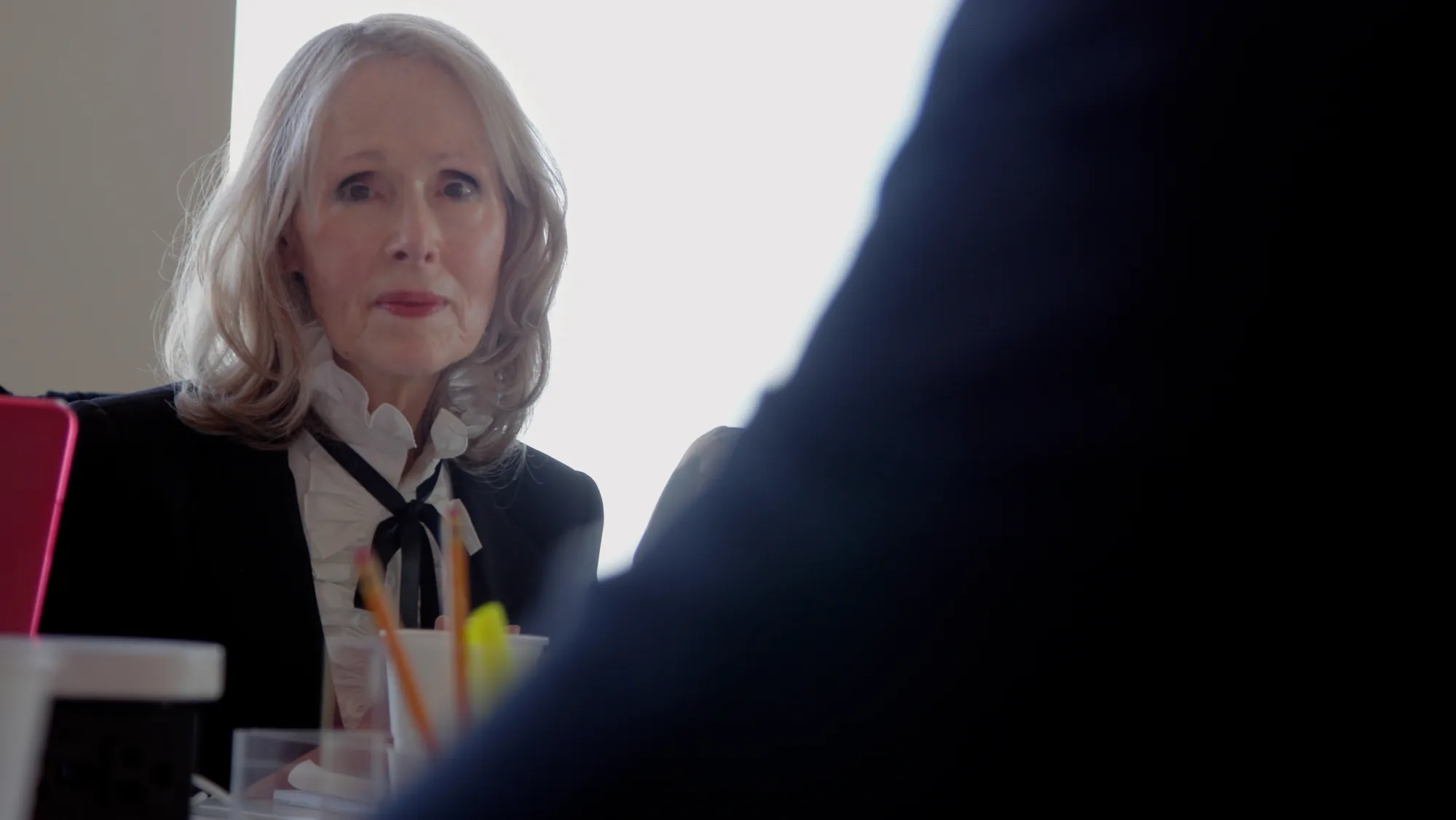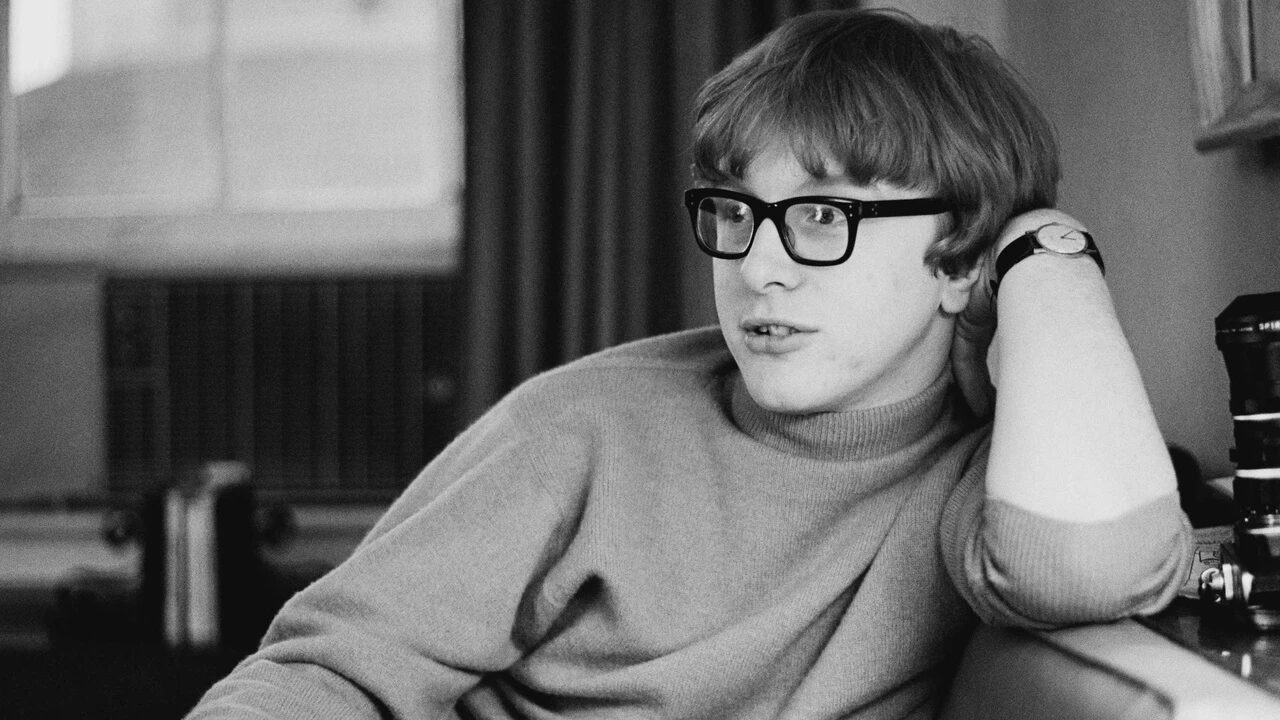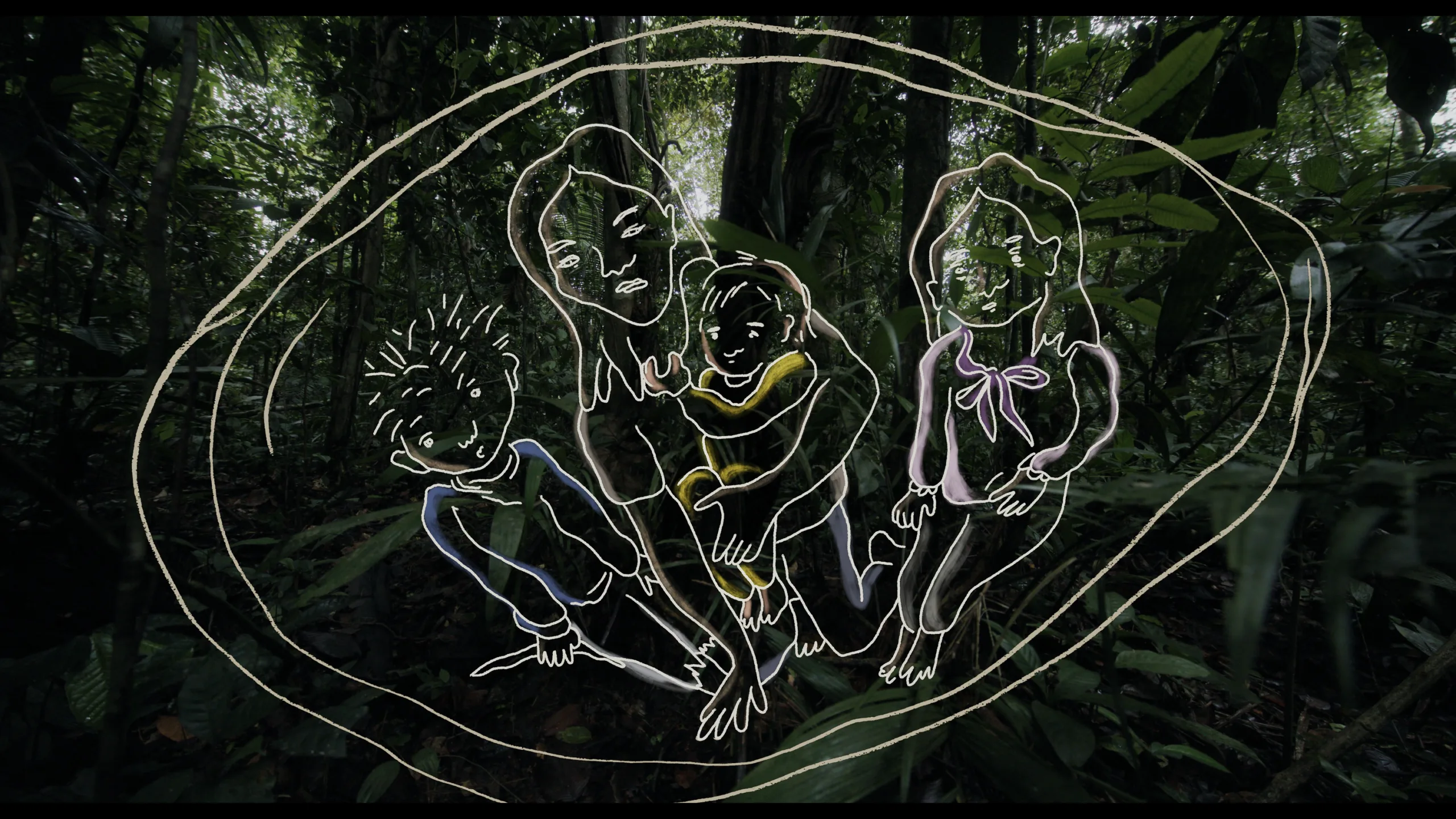Telluride Film Festival has become well known for programming Oscar-contending films. While most eyes are drawn to potential “Best Picture” titles, Telluride consistently curates a strong, socially relevant selection of documentaries. This year, there was a slight pivot from last year’s focus on political, pre-election films, and the diversity in themes explored is tied together by the elegant execution from each filmmaking team.
Elizabeth Chai Vasarhelyi and Jimmy Chin, the director-duo best known for their exhilarating, athletic-leaning storytelling, collaborate with co-director and producer Juan Camilo Cruz to document and recount their most layered and familial story yet with “Lost in the Jungle”. The National Geographic film takes on a miraculous search and rescue mission through the Colombian jungle, whose elements include Indigenous traditions, military procedure, and a mother and her children who left for Bogota in search of a better life. The three-pronged story is braided together to create a tight-knit, robust, 90-minute drama-docu-thriller.
The strongest thread juxtaposes the military’s tactics from the longstanding traditions of the Indigenous peoples. We follow two of the troops who carried hand-held cameras, videoing their treks, their interviews peppered together in a way that creates dialogue and brief moments of conflicting comedy. The film’s tone is quite bleak until the military and Indigenous groups come together to combine efforts; we finally witness the story’s first win and pray alongside them for continued success in their search.
The film’s second thread investigates the mother, Magdalena, after she’s had enough of her abusive relationship. One of her dear friends paints the scene of the multiple public instances where Manny, her husband, put his hands on her. She fled their small town with her four children; halfway through their flight, the plane went down in the middle of the jungle. The filmmakers creatively utilize animated recreations of the scenario with voice-over narration from the children and their loved ones. After the crash, only the children survived; the animations, although strategic and smart in lieu of live reenactments, do not accurately capture the tumultuous weeks-long journey ahead. The eldest daughter, Lesly, at only 13 years old is responsible for their survival; for 40 days and nights, she was the sole support system for her younger siblings with absolutely no resources besides the earth around them. Rather than shielding the audience from the kids’ state of emaciation and devastation, we’re gutpunched by finally seeing them on the day of their discovery.
The news of such a tragedy caused all of Colombia to coalesce into a collective prayer, but we truly don’t grasp the entirety of its reach until the end of the film. Justly and deservedly, both the military and Indigenous search teams were awarded by the government. The masses hosted a parade size rivaled that of a World Cup win, and the curation of the footage enhances the communal joy and appreciation that the children are found and safe. “Lost in the Jungle” reminds us of our duty to our community and culture.

In her newest documentary, Ivy Meeropol (“Bully. Coward. Victim. The Story of Roy Cohn”) is amplifying and archiving the evolving life and legal battles of writer and everlasting cool-girl, E. Jean Carroll. “Ask E. Jean,” suitably named after Carroll’s former television show and advice column, is a thoughtful and tactful retrospective of her life and her career’s role in the context of the broader, decade-spanning feminist movement.
Before she resurfaced in headlines in 2019 for accusing Donald Trump of rape, Carroll was commonly known to pre-gen Z people as the go-to for women-empowering wake-up calls. As the film oscillates between archival footage of her previous television episodes, photographs of her childhood and college years, and contemporary vlog-like content of her career renaissance, it’s made abundantly clear that Carroll has always been who she is: an unapologetic, eccentric curator of culture and relationship standards. After bravely coming forward, having been inspired by the MeToo Movement, Trump deployed his stale, wicked, yet effective weapons of defense. Featured news segments showcase him subliminally summoning his disciples to discredit anyone who’s critical or accusatory of him, completely devaluing Carroll’s entire career, shrinking her down to being nothing more than a “liar” who he claims is “not even his type.”
Meeropol and her all-female crew are methodical and calculated in the recounting of Carroll’s life before and beyond the trial in 2022. By working alongside her legal team, spearheaded by Robbie Kaplan, who plays a prominent role in the picture, all parties involved were required to act with precision and patience. Because this story is handled with a great amount of care, it balances eliciting a plethora of scoffs and laughter from its viewers, a perfect mirror of Carroll’s habit of countering conflict with comedy.
To this day, Trump has yet to pay up. While true change is more possible once Carroll receives her reparations, “Ask E. Jean” is another mechanism for actually attempting to hold him accountable for his criminal behavior. Since Carroll’s Elle column was cut after she stepped forward, an insidious decision from the publication, she, like many writers, has reestablished their voice on Substack; her bio perfectly sums up her documentary: “Never let them steal your joy!”

Documentary filmmakers Dayna Goldfine and Daniel Geller were not afraid to bedazzle their new documentary, “Everywhere Man: The Lives and Times of Peter Asher,” with as much talent as possible. Like E. Jean, Asher is a culture-curator who’s reached life’s best years, finally unfiltered yet retaining icon status. The film rides the wave inspired by the popstar, producer, and music manager’s personality. While Asher was a member of the “A World Without Love” hitmaking duo Peter & Gordon, led Apple Studio’s A&R department, and made artists like James Taylor and Linda Ronstadt into household names, it’d be easy to think that not enough people know his importance. His continued relevance is illustrated however when the documentary crew are out shooting in London and fans interrupt to snap a selfie.
With no shortage of black and white and color archival footage and photographs, the narrative comes together cohesively and chronologically. Starting with newsclippings from his childhood years, we learn that Asher was always in the spotlight. As he evolved from an actor to a pop star to a producer to a manager, the story is detailed by a myriad of supporting characters. New and old interviews with folks like Asher’s sisters Jane and Clare, Steve Martin, Robin Williams, and Ronstadt are all so straightforward yet nonchalant; their matter-of-fact tone leaves no room for questioning Asher’s artistic eye and abilities.
Drawing influence from Asher’s live shows, the film borrows clips from various performances through the years, anchoring itself in his musical start with Gordon Waller. Yet, due to the quick pivots in visuals and tone, it’s difficult to connect with their falling out, especially knowing that Asher was able to evolve without so much as a stutter step. Perhaps this snappy editing is purposeful in mirroring the fast-paced lifestyle of being a music professional, but it unfortunately keeps the story superficial. Goldfine and Galler attempt to weave in some grounded reflection by prompting their subjects about the significant drug use in the industry during the 1960s-1980s; I’d even go as far to argue that part of the laid-back and silly energy from some interviewers stems from their love of the ganja. The film’s soundtrack was cherry-picked from Asher’s vast, ever-growing catalogue. Although a bit long, “Everywhere Man: The Lives and Times of Peter Asher” is a nostalgic ride of what it once meant to be a real rockstar.











